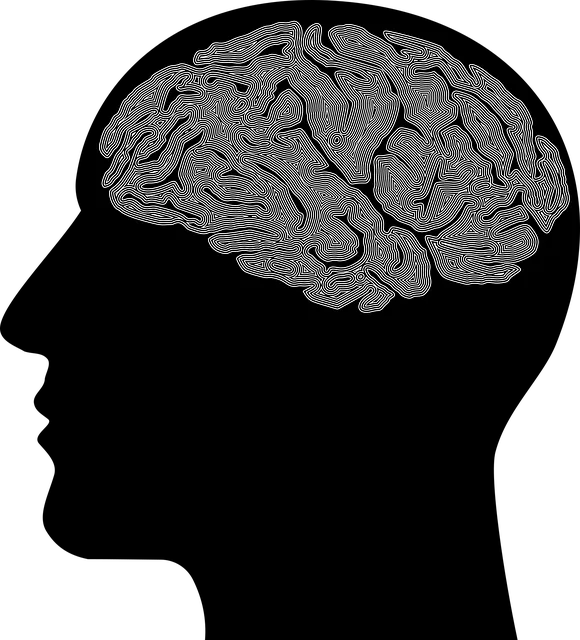The Kaiser Permanente behavioral health center Aurora focuses on holistic mental wellness through strong patient-provider relationships, empathy-building, and cultural competency training. They use KPIs and qualitative methods to evaluate programs, tracking participant satisfaction and self-care adoption. Quantitative analysis helps measure anxiety/depression reductions, while qualitative feedback reveals needs like cultural sensitivity. Continuous improvement drives tailored interventions for positive thinking and accessible mental wellness support.
Mental wellness program evaluations are vital for gauging effectiveness and driving improvement. This article explores comprehensive evaluation methods employed by the Kaiser Permanente Behavioral Health Center Aurora, highlighting key performance indicators, qualitative insights from participant voices, quantitative data analysis techniques, and continuous improvement strategies based on findings. Discover how these approaches enhance mental health services, drawing lessons from the Kaiser Permanente Behavioral Health Center Aurora’s successful model.
- Understanding Kaiser Permanente Behavioral Health Center Aurora's Approach
- Key Performance Indicators for Mental Wellness Programs
- Qualitative Evaluation Methods: Voice of Participants
- Quantitative Data Analysis Techniques for Program Effectiveness
- Continuous Improvement: Iterating Based on Evaluation Findings
Understanding Kaiser Permanente Behavioral Health Center Aurora's Approach

Kaiser Permanente Behavioral Health Center Aurora adopts a holistic and patient-centered approach to mental wellness program evaluation. They believe that understanding individual experiences and perspectives is crucial for developing effective interventions. Therefore, they prioritize building strong relationships and fostering empathy between healthcare providers and patients. This involves implementing Empathy Building Strategies to ensure every patient feels heard, respected, and understood. By creating a safe and supportive environment, the center facilitates open communication, which is essential for accurate assessment and tailored treatment planning.
Beyond individual interactions, Aurora’s evaluation methods encompass the broader community context. They recognize that mental health is influenced by various social determinants, so they integrate Healthcare Provider Cultural Competency Training to address potential biases and improve cultural sensitivity. Additionally, the center actively engages in Community Outreach Program Implementation, collaborating with local organizations to expand access to mental wellness services and promote a culture of care and support throughout the community.
Key Performance Indicators for Mental Wellness Programs

Mental wellness programs, such as those offered at Kaiser Permanente behavioral health centers like Aurora, need robust evaluation methods to measure their effectiveness. Key Performance Indicators (KPIs) play a crucial role in gauging the success and impact of these initiatives. One key KPI is participant satisfaction, which can be assessed through surveys and feedback forms, providing insights into the perceived quality and usefulness of the program.
Another vital metric is the adoption and sustainability of self-care practices, emotional healing processes, and self-awareness exercises among participants. Tracking the continuation of these practices beyond the program’s duration demonstrates its long-term influence on mental wellness. Additionally, measuring changes in behavioral health outcomes, such as reduced symptoms of anxiety or depression, can serve as a strong indicator of program success, contributing to the overall well-being of individuals served by centers like Kaiser Permanente Aurora.
Qualitative Evaluation Methods: Voice of Participants

The evaluation of mental wellness programs at places like the Kaiser Permanente behavioral health center Aurora often incorporates qualitative methods to gain deeper insights into participant experiences. One such method is collecting and analyzing the voices of participants through interviews, focus groups, or survey questions that encourage open-ended responses. This approach allows individuals to share their personal stories, reflecting on their journey within the program and the impact it has had on their lives. By listening to their narratives, researchers can identify themes related to coping skills development, emotional support received, and barriers faced.
Qualitative evaluation provides a window into the participants’ perspectives, helping to refine programs by addressing specific needs. For instance, through these methods, the importance of cultural competency training for healthcare providers became evident. The experiences shared revealed challenges stemming from cultural differences, prompting the implementation of empathy-building strategies to enhance patient care and program effectiveness. This qualitative feedback is invaluable in tailoring mental wellness initiatives to better serve diverse communities.
Quantitative Data Analysis Techniques for Program Effectiveness

Quantitative data analysis techniques play a pivotal role in evaluating the effectiveness of mental wellness programs offered by institutions like the Kaiser Permanente behavioral health center Aurora. These centers often conduct surveys, collect feedback from participants, and track key performance indicators (KPIs) to measure the impact of their initiatives. For instance, assessing changes in anxiety and depression scores through structured questionnaires before and after program implementation can provide robust evidence of improvement.
Additionally, statistical methods such as regression analysis enable researchers to analyze relationships between variables, helping them understand which aspects of the Mental Health Education Programs Design are most influential in stress management. This data-driven approach not only informs the continuous improvement of existing programs but also guides the development of new initiatives, aligning with broader Mental Health Policy Analysis and Advocacy efforts.
Continuous Improvement: Iterating Based on Evaluation Findings

At the Kaiser Permanente behavioral health center Aurora, continuous improvement is a cornerstone of their mental wellness program evaluation methods. By iteratively revising and enhancing their approaches based on evaluation findings, the center ensures that their programs remain effective and aligned with evolving needs. This process involves regularly assessing outcomes, gathering feedback from participants, and incorporating best practices from both within the organization and external research. Such iterative improvements allow for more tailored interventions, including Stress Reduction Methods and Self-Care Practices, which are integral to fostering Positive Thinking among clients.
Through this continuous improvement cycle, the Kaiser Permanente behavioral health center Aurora not only enhances the quality of their services but also creates a dynamic environment that encourages client engagement and positive outcomes. This commitment to ongoing evaluation ensures that the programs remain relevant, accessible, and impactful for those seeking mental wellness support.
The evaluation of mental wellness programs, as demonstrated by Kaiser Permanente Behavioral Health Center Aurora’s approach, is a multifaceted process that combines qualitative and quantitative methods. By understanding participant experiences through qualitative evaluations and analyzing numerical data for key performance indicators, centers like Kaiser Permanente can iteratively improve their services. This continuous improvement model ensures that mental wellness programs remain effective and tailored to the needs of those they serve. Embracing these evaluation methods enables organizations to truly revolutionize care, fostering a healthier and more supportive environment for all.






